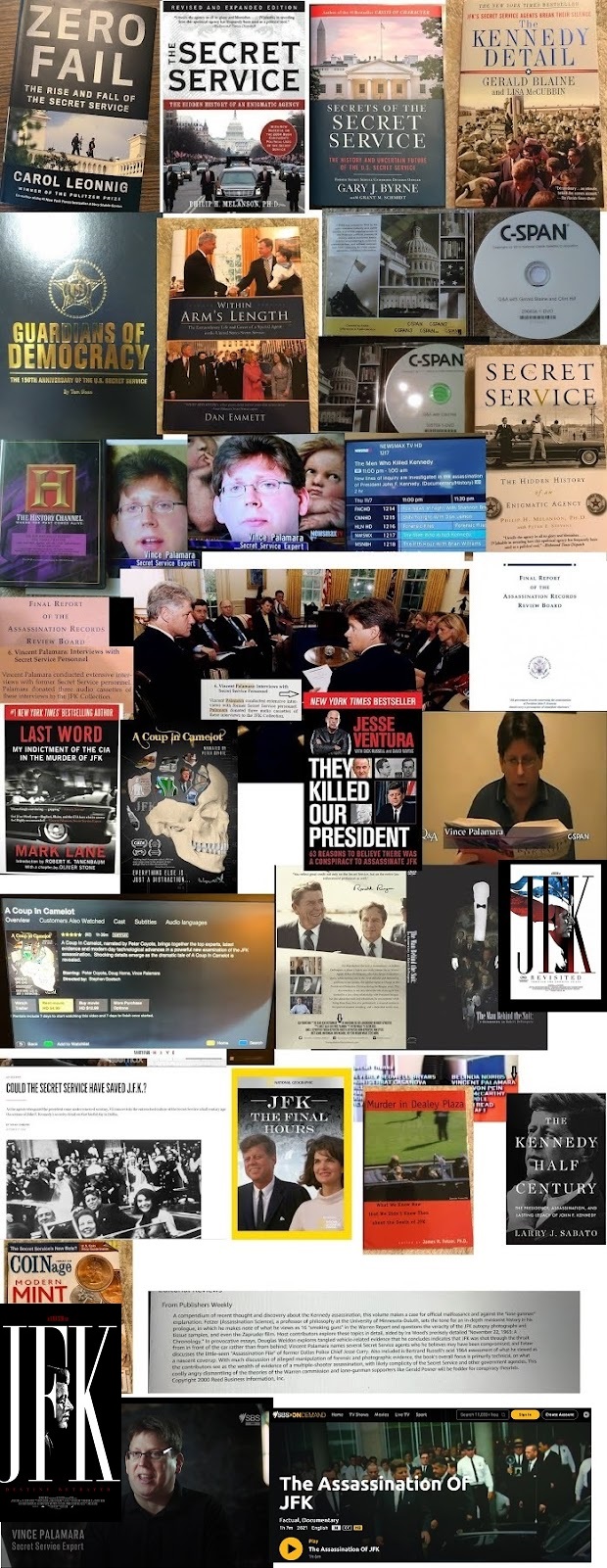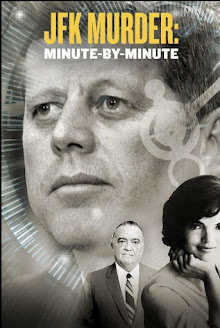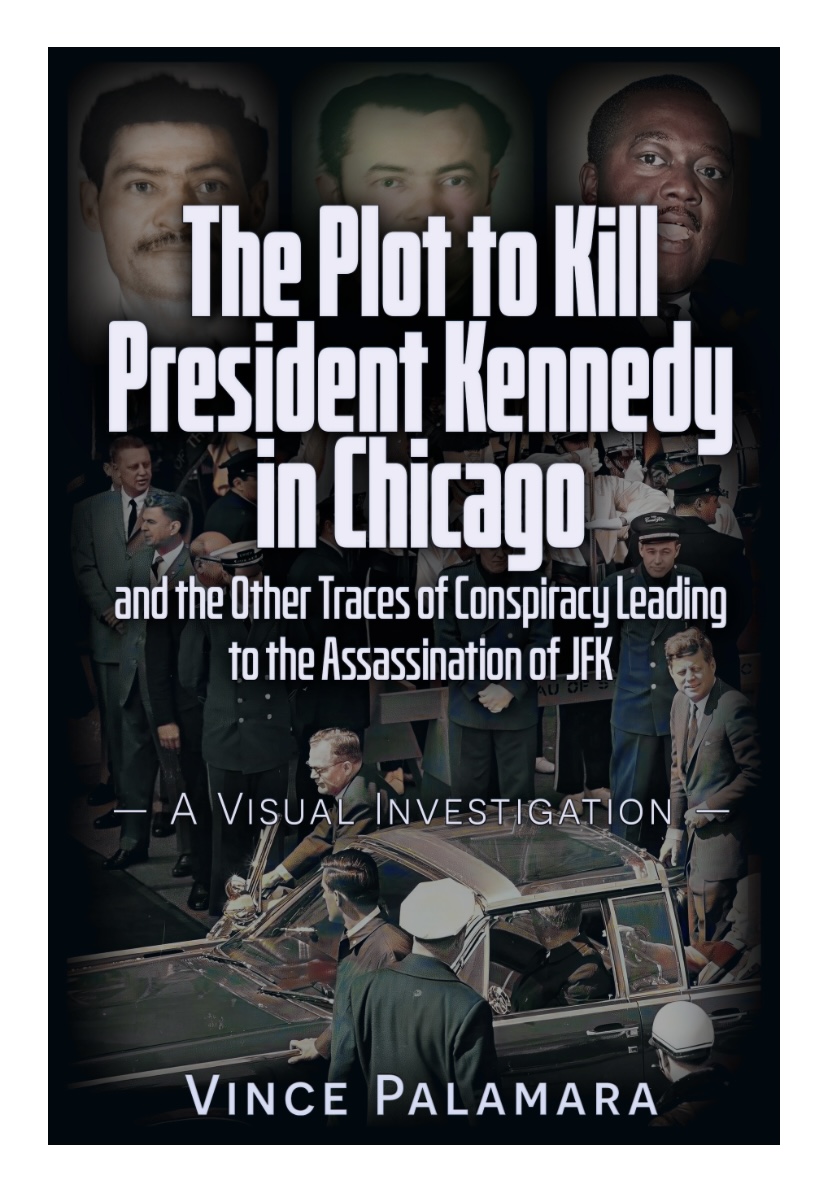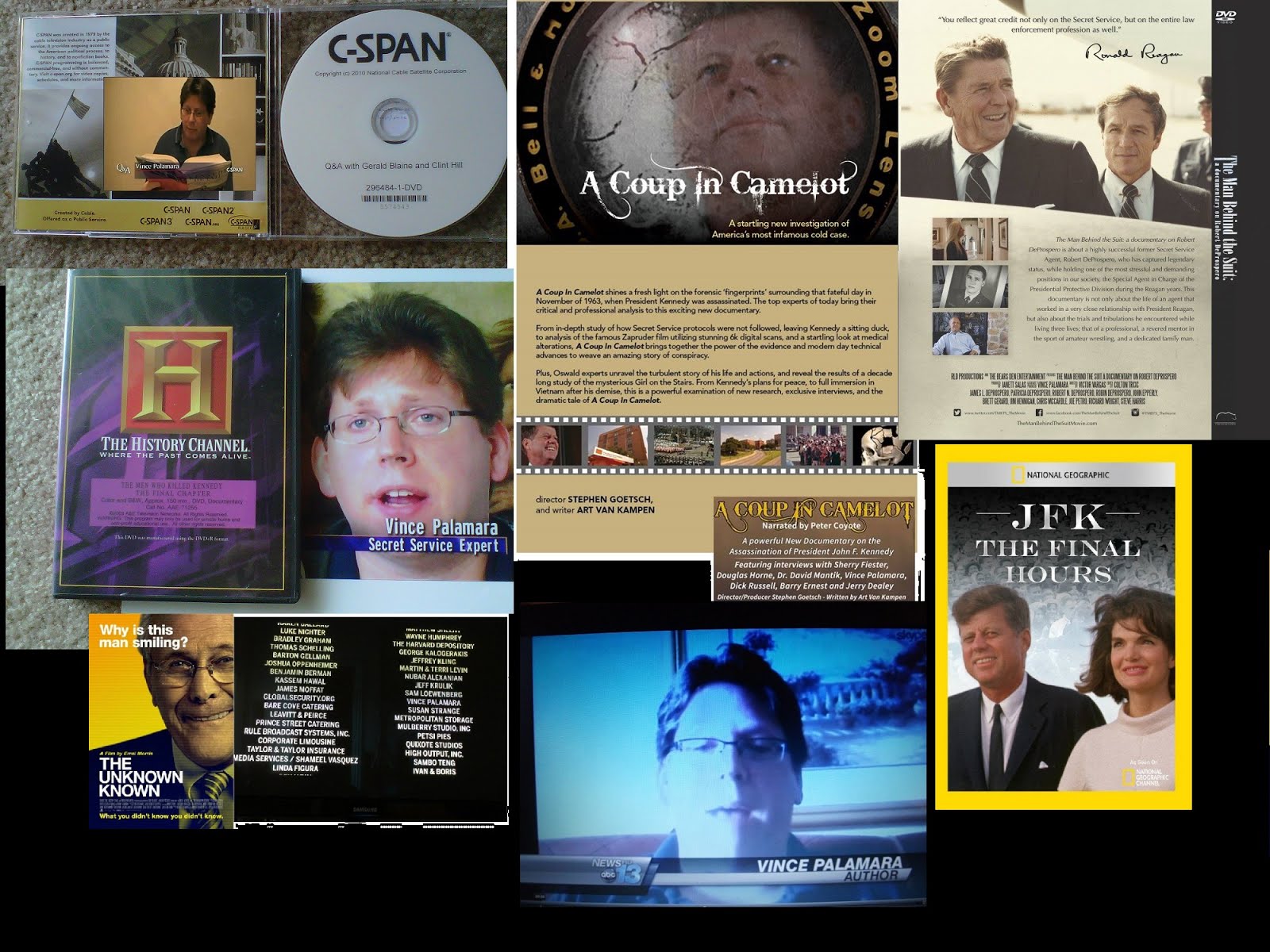Dave Bakke: JFK book captures Springfield man's past
DAVE BAKKE
Posted: 10/13/2012 10:00 PM
Vernon Copeland of Springfield is reading Bill O’Reilly’s new book, “Killing Kennedy: The End of Camelot.” There are few in central Illinois who will read it with quite Vernon’s perspective — not unless they have stood across the desk from President Kennedy as he signed a picture for them as Vernon did. He still has the picture. He still has his memories of escorting a newly inaugurated Kennedy to the Oval Office for the first couple of weeks of JFK’s presidency.
Vernon, 81, was a Secret Service agent, working White House security as far back as Eisenhower’s presidency. Just after Kennedy was inaugurated, Vernon was assigned to guard the president on his morning walk to work.
“We learned quickly,” Vernon says of that security detail, “that we’d better be up on things. Every morning, he wanted to know what we thought of what was in the morning papers.”
Vernon was soon reassigned elsewhere. After JFK’s assassination in 1963, he, like most Secret Service agents, was ordered to Washington, D.C., for the funeral. Vernon stood on Pennsylvania Avenue as the horse-drawn cortege carrying Kennedy’s body rolled past.
Members of the Warren Commission who subsequently investigated the assassination practically stood next to Vernon as he provided security at the northwest gate of the White House. The commission members wanted to know everything he did and why he did it that way.
And so O’Reilly’s book is about Vernon’s own past. From what he has read so far, he likes what O’Reilly and co-author Martin Dugard have written about the events surrounding Nov. 22, 1963.
“It’s quite interesting, to say the least,” says Vernon, “O’Reilly does a good job on his books. I like anything he writes. If he can’t back it up, he won’t write it.”
O’Reilly doesn’t name names of the Secret Service agents in his book, but Vernon says he must have interviewed some of them to get the details he has.
The book that did name names of agents was written by one. It’s “The Kennedy Detail” by Gerald Blaine. Vernon worked with Blaine and was surprised that he even wrote the book, which was published just two years ago. After all, it is subtitled “JFK’s Secret Service Agents Break Their Silence.”
Vernon watched a televised discussion featuring Blaine and Clint Hill, a Secret Service agent who was on the limousine in Dallas when Kennedy was shot.
“I knew all those guys who were on that TV show,” Vernon says. “We never talked to each other about it all those years, then comes this book.”
One Kennedy book Vernon hasn’t read is Stephen King’s “11/22/63,” which I read last year. King has a character travel to the past to stop Lee Harvey Oswald in time, then comes back to the future to see what the world would have been like had JFK lived. Vernon took down the name of the book, so he’ll get to it.
Following the Kennedy years, Vernon went on to work for President Johnson before leaving the White House for other assignments. But the day after Robert Kennedy was assassinated in 1968, Vernon ended up back on the presidential detail. He got a call to be at a particular address in D.C. that day. When he arrived, he received his new assignment — head of security for Pat Nixon, whose husband would win the presidency in November.
“I worked for Mrs. Nixon every day from June to Christmas Day,” Vernon says. “Sixteen-hour days, seven days a week for six months.”
Vernon worked for Pat Nixon after the election as well, traveling the country and beyond. On the wall of his office at home, next to a large photo of the White House, are personally signed photos of the Nixon family.
Vernon retired in 1978 after, as he puts it, “23 years, two months and 16 days” with the Secret Service and federal intelligence. He says it’s funny, but he never read books until recently. He is devouring them now, including books about his old boss, JFK.
As we said goodbye after talking for a while, Vernon was apologetic. He had noted earlier that O’Reilly’s book delves into Kennedy’s extra-marital affairs.
“I didn’t give you much juicy stuff,” he told me. “That’s because I don’t know any. And I’m glad I don’t.”
http://www.glynn.k12.ga.us/BHS/Juniorprojects/Hopkins/JonathonC18/
The Assassination of John F. Kennedy
Vernon A. Copeland
Grandfather
Oct,26,2000
He was 32 years old and at work when he heard the news of the assassination .
He said it was a shock to him ,everyone was stunned. People were in shock, some cryed. He belived Johnson had a part in the assassination of J.F.K. because moments before the shooting Johnson changed seating places.He belived there was only one shooter alot of people believe there was more than one Personally he never liked Johnson we were alot better off with J.F.K. The Vietnam War may have never occured had Kenedy lived.Kenedy was a young modren day man, decent man,that came from a powerful family.One great thing Kenedy did was to deal with the Cubon Missile crisis.He liked the quote-Ask not what your country can do for you but what you can do for your country.The Copelands bought their first T.V. during the final campaiging days of J.F.K.and then got to see him inaugurated as President of the United States.
Kenedy was descended from Irish forebears who immigrated to boston. His grandfather, Patrick J. Kenedy, started as a saloonkeeper and became a Boston political leader. His father, Joseph Patrick Kenedy, graduated from Harvard , became a bank president at 25, and married the dauther of John Francis(''Honey Fitz'')Fitzgerald, mayor of boston.John was born on May 29, 1917, in Brookline, Mass., the second of nine children. As an infant he lived in a comfortable but modest frame house in that suburb of Boston. As the family grew and the father's fortune increased, the Kennedys moved to larger, more impressive homes, first in Brookline, then in suburbs of New York City. John had a happy childhood, full of family games and sports. He attended private elementary schools, none of them parochial. He later spent a year at Canterbury School in New Milford, Conn., where he was taught by Roman Catholic laymen, and four years at Choate School in Wallingford, Conn.
On November the 22nd, 1963, John Fitzgerald Kennedy, 35th President of the United States was murdered in Dallas (Texas). For many years now, I've been investigating on my own and want to give you interesting and maybe shocking details
In 1992, I first learned some of the facts about the assassination of John Fitzgerald Kennedy and about the countless doubts. Oliver Stone's "JFK" turned out to be the milestone I needed to take interest in the events ofNovember 22, 1963. I couldn't believe that there have been so many mistakes in the official investigation and somany doubts and unknown facts coming from so many people.So I decided to learn more about the assassination and I have read "On The Trail of The Assassins" by JimGarrison. Reading it twice, then three times I started to believe that the FBI, the CIA and the Secret Service were involved in planning, executing and disguising the assassination. Yet, it is hard to believe that these official institutions killed their own President. I have not found any theory based on all the facts and witnesses, any theory which explains why the FBI, CIA and Secret Service protected the real assassins and hid their knowledge, which explains why they stopped any trial to find out what had happened on November 22, 1963.
In my opinion, the theory of Jim Garrison can explain all the details.
From "Walking With Presidents" by former Secret Service Agent Mike Endicott:
page 90: reassigned to First Lady Pat Nixon's Detail- SAIC was Vern Copeland
Subscribe to:
Post Comments (Atom)










































![VINCE PALAMARA [remember to scroll all the way down!]](https://blogger.googleusercontent.com/img/b/R29vZ2xl/AVvXsEjSZ-Z_puqnjl3UgdiJxBenMyIMaFhmBD-PYQUsxCtFS4UF7dJQB6n32rt9a0ZqFRPmuBoukhrMZxv6LOD9GoUGPiaShO3wj_8xL98obRAsUbIf0mXutzbq7jKDrCp8Y-Y0k9rnS5ARjQQ/s1600/11.jpg)


![CHAPTER 8 OF ARRB FINAL REPORT [I AM IN THIS REPORT, AS WELL]...HMMM---THE SECRET SERVICE DESTROYS](https://blogger.googleusercontent.com/img/b/R29vZ2xl/AVvXsEimGbOuG69gW-cgAbsfjd8p8PD-subznIjcsQXUSFq560o_kiXunf9TcH0fkOqmWuK73id6m5TyVMhWcfBrPUEee6JLbvqNZKdIVQa5Drcz568Ue6GZdf_PUtLuLwPDcucv3gOn5KGBZPw/s1600/DSCF0462.JPG)




No comments:
Post a Comment